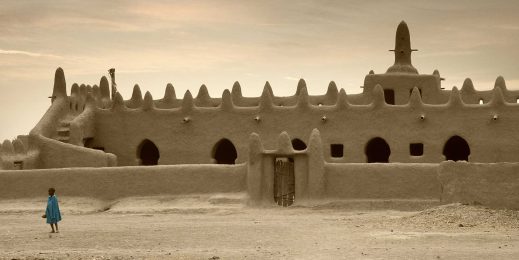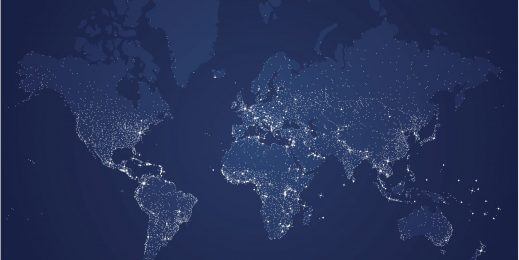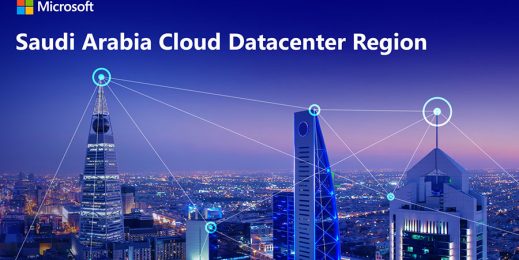
Oil price challenges do little to derail economic progress in the Middle East – here’s why
It has been more than 100 years since the remarkable discovery of oil in the Gulf region, setting off a wave of exploration that changed the region’s fortune forever.
By 1938 an American-owned oil well in Saudi Arabia had drilled into what would become the largest source of oil in the world. This thick yellow-black substance quickly became the most important commodity in the 20th-century, fuelling a rapidly developing global industrial sector and an expanding automobile industry.
With vast amounts of this precious substance stored deep under the surface of the Gulf, and an insatiable hunger in the West for oil to drive progress, the region became immeasurably wealthy.
The future after fossil fuels
However, with oil prices falling, countries in the Middle East are investing billions of dollars in efforts to develop a diversified and knowledge-based economy.
As such, it seems the Middle East is emerging from the ongoing oil-price predicament relatively unscathed.
The region’s resilience is hardly surprising. A deep desire to embrace the latest trends and changes, and rapid digital transformation, is driving the region to greater heights as countries relentlessly pursue new avenues of growth.
According to a report by PwC, UNIDO and GMIS, digital transformation will generate an extra $16.9 billion in revenue each year for companies in the Middle East, between now and 2021.
This will largely be the result of considerable investment in technology. According to Gartner, the public cloud services market in the Middle East and North Africa (MENA) region is expected to grow by 22.2% in 2017 to total $1.2billion. This is up from $956 million in 2016.
Impressive targets for economic development have been set by states across the Gulf.
With cloud, the sky’s the limit

Saudi Arabia’s Vision 2030 is at the heart of the Kingdom’s mission to diversify its economy by using technology to turn the country into an economic and investment powerhouse. In line with this, some ministries, institutions and government entities have undergone restructuring to be able to fulfil their mandates more effectively and increase their competencies. Part of the government’s plans include the expansion of digital services to reduce delays and tedious bureaucracy.
To develop the institutional capacity required to achieve this vision, Saudi Arabia launched the National Transformation Programme 2020. Measures outlined in the programme are expected to raise an extra $100 billion by 2020, more than tripling non-oil income. The programme’s strategic objectives are linked to interim targets for the year 2020. There are five distinct phases of implementation, the first of which was launched in 2016. From healthcare to education, tourism and more, Saudi Arabia has set itself an impressive 346 targets across different sectors of the economy, many of which will be underpinned by the drive towards digital transformation.
The country has partnered with Microsoft to create technological solutions to turn Vision 2030 into a reality. “Technology enables evolution”, said Microsoft International’s president, Jean-Philippe Courtois. “The sky is the limit in terms of what technology can be used to achieve. This evolution can take shape in several forms: New online services, better education, more creative ideas, opportunities for businesses, and a broader digital market to sell products and services.”
The possibilities for transformation are endless with Microsoft’s range of innovative digital services aimed at delivering safer and healthier lives, enriched by high quality education. Its CityNext platform makes use of the Microsoft Cloud to transform cities and optimise city operations. Shared services provide governments with flexibility, manageability, scalability and cost efficiencies associated with the cloud.
The future of public service is here

Home to the world’s tallest building and the least oil dependent city of the United Arab Emirates’ seven emirates, Dubai is making significant strides in digital transformation through its smart city initiative, Smart Dubai.
Not satisfied with having a seven-star hotel, an indoor ski slope and being one of the world’s favourite shopping destinations, the emirate is also on a mission to make Dubai a more efficient and impactful experience for both residents and visitors. Smart Dubai is based on the thinking that smart cities are only truly smart if they can anticipate urban challenges and improve the quality of life of their citizens. Simply put, smart cities should make the people that live within them happier.
Then and now

Evidence of this commitment is found in various smart implementations already in place. One example is the Dubai Electricity and Water Authority (DEWA), which has adopted Microsoft HoloLens to enhance its operations and improve productivity. With this technology, DEWA is pioneering new standards of public service.
For example, the authority views the data from its energy plants in 3D with HoloLens. The technology can also be used in confined spaces, enabling direct communication with the entire team and allowing for quick and effective decision-making.
It also provides a holographic view of the DEWA Smart Grid, on a scenario-by-scenario basis. This essentially allows DEWA to create interactive 3D models of the plants’ equipment and the remote expert assistance available, including features such as access to maintenance job cards, equipment, training manuals and other operating procedures. DEWA then uses this information to produce virtual estimations of the remote maintenance required at the smart power plants. The benefits of this are significant, including quicker technical decisions, more efficient future demand management, greater energy efficiency and a reduction of power consumption.
“DEWA is constantly spearheading innovation in all its operations and processes. We are committed to supporting them in this journey. We will continue to innovate and enable digital transformation around personal computing, the intelligent cloud, productivity and business processes, empowering the government to achieve more,” says Samer Abu Ltaif, President of Microsoft in the Middle East and Africa.

Another example of world-first innovation in Dubai is the recently launched Dubai Font, the first typeface developed by Microsoft for a city, which will be available in 23 languages, and supports both Arabic and Latin characters.
According to Prince Hamdan, head of the Executive Council of Dubai, which manages the affairs of the city-state, the font reflects the UAE’s vision to become a regional and global leader in innovation. This all forms part of Dubai’s commitment to diversify its economy beyond a siloed focus on energy, trade and tourism.
Progress made by the Middle East in terms of digital transformation is impressive. By investing in the right technology, the region is proving that, not only is it no longer reliant on oil, but it’s ready to lead the rest of the world forward into a new era of smart city management.










![A security team analyses key data from a visual dashboard.]](https://news.microsoft.com/wp-content/uploads/prod/sites/133/2023/04/Security-Sprint_TL_Banner-Image-519x260.jpg)



